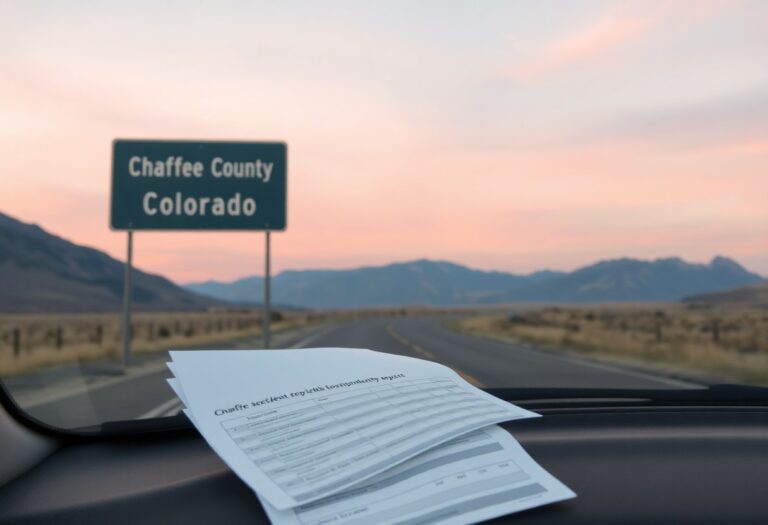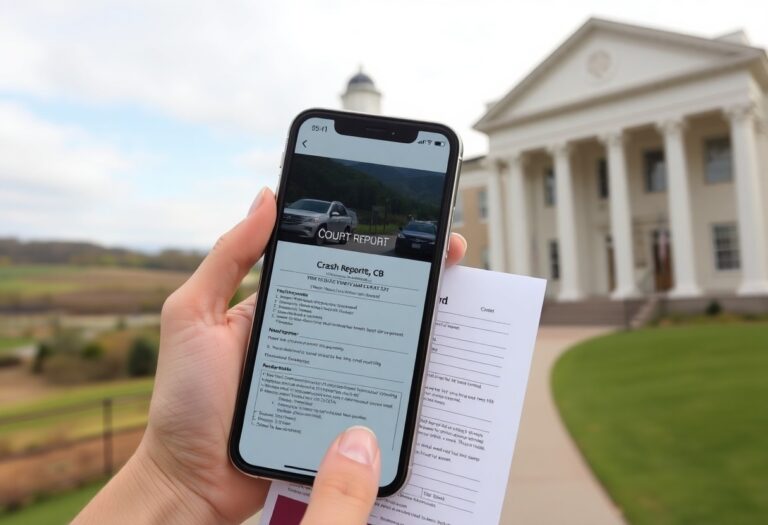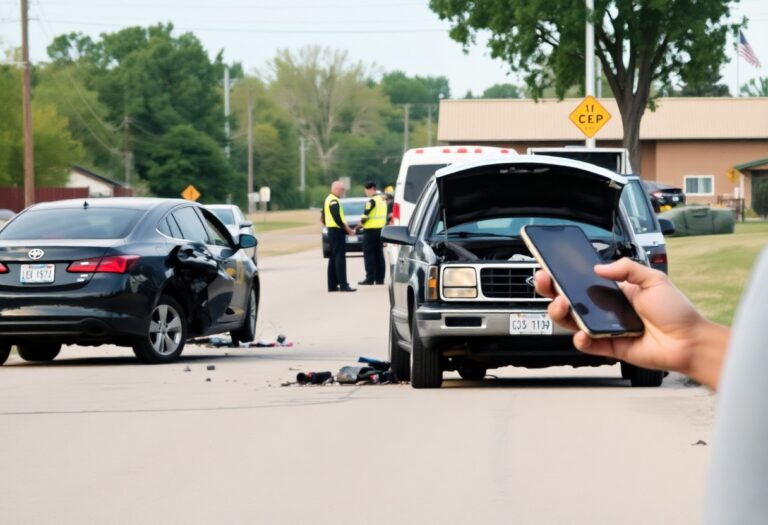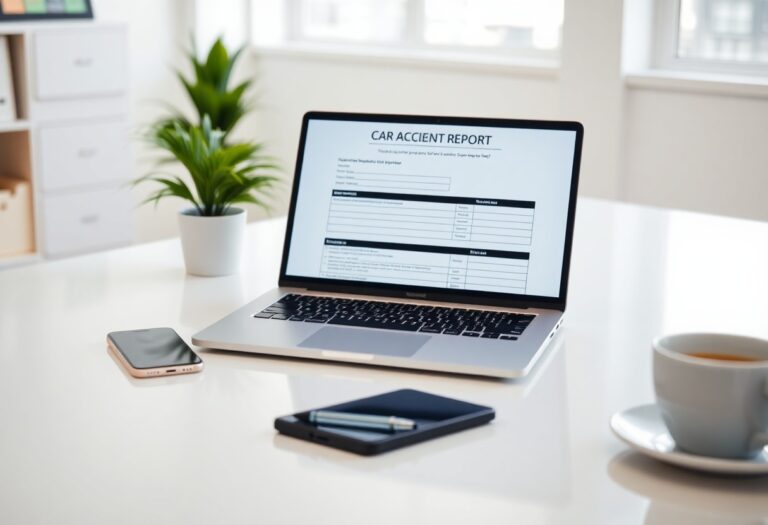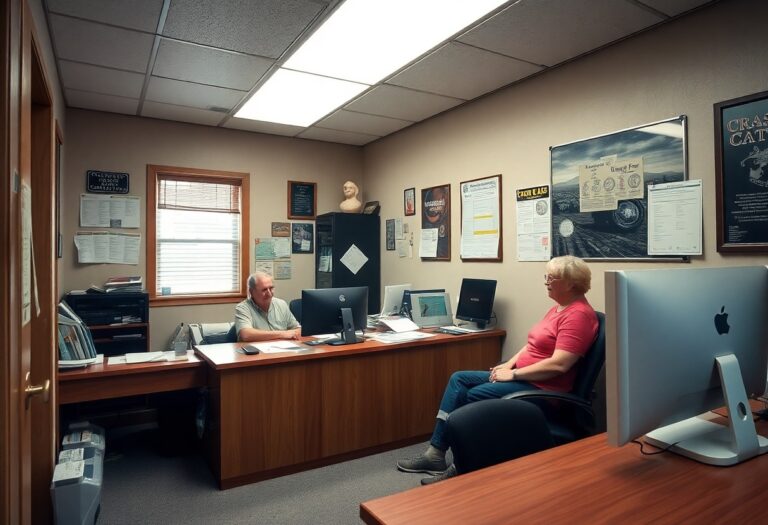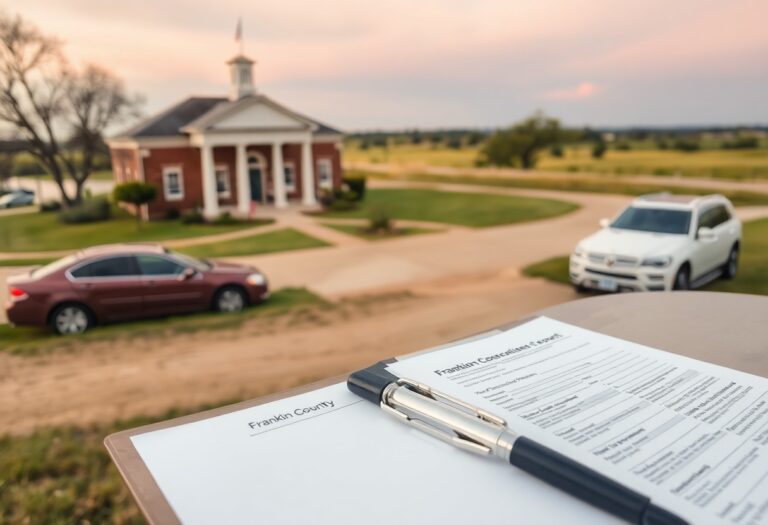Guide yourself through the process of obtaining car accident reports in Brooke County, West Virginia, with this informative step-by-step guide. If you find yourself involved in an accident, understanding how to access these reports will be beneficial for your insurance claims and legal protection. This guide provides you with vital information on where to go, what documents you’ll need, and tips for ensuring that your report is accurate and complete. Equip yourself with the knowledge to handle this important aspect of post-accident procedures efficiently.
Navigating the Immediate Aftermath of a Collision
Your first steps after a collision shape the aftermath significantly. You may feel overwhelmed, but acting deliberately can aid your recovery and legal process. Stay calm, check for injuries, and ensure all involved parties are safe. Call the police to report the accident, which will help document the event thoroughly. Keep in mind the importance of documenting the scene as this information will be vital for insurance claims and any potential legal matters.
Prioritizing Safety and Health
Focus on your safety and the well-being of others first. Move to a secure location if possible and assess injuries. If anyone is hurt, securing emergency assistance is your top priority. Even minor injuries can escalate without proper attention, so don’t hesitate to wait for medical personnel, especially in a collision.
Essential Information to Document on Scene
Gathering necessary information at the scene can streamline the insurance and legal processes later. Collect the names, contact details, and insurance information from all involved parties, along with license plate numbers. Use your phone to take photos of the vehicles, damage, and surrounding environment, capturing factors like road conditions and any traffic signals. Obtain witness statements if available, as these can bolster your case.
Documenting necessary information on scene requires attention to detail. Note the exact time, date, and location of the accident, which can influence many aspects of your case. Take photographs not just of vehicles but of any visible injuries, debris, and street signs. This evidence can serve as a visual account to support your narrative when filing claims. Jotting down your thoughts about the incident soon afterward will also help you remember key details that might otherwise fade. Having a comprehensive record provides a solid foundation for any reports and potential legal proceedings that may follow.
Understanding the Critical Components of a Car Accident Report
A well-prepared car accident report is vital for documenting the events surrounding a crash. This report includes vital information that helps determine liability and assesses damages. You’ll want to focus on key details like the time and location of the accident, descriptions of the vehicles involved, information about the drivers and witnesses, and the specific circumstances of the accident. Accurately capturing this information can greatly influence the outcome of insurance claims or legal proceedings.
Key Elements Required by West Virginia Law
West Virginia law mandates that certain elements are included in a car accident report to ensure thoroughness and clarity. Your report should contain the date and time of the incident, an accurate description of the vehicles, names and contact details of all parties involved, and any witnesses. Additionally, you must include the insurance information of each driver and the responding law enforcement agency’s details. Failing to include these key components can complicate subsequent claims or investigations.
Common Mistakes to Avoid When Filing
Filing a car accident report may seem straightforward, but common pitfalls can occur. You should avoid vague descriptions, incomplete information, and missing signatures. It’s also important not to admit fault at the scene, which can adversely affect your insurance claims and any legal proceedings. Ensure that all facts are recorded accurately, and double-check for any errors before submission.
One significant mistake you could make is assuming that the police report will suffice. Your personal report and the police report serve different purposes. Omitting your observations or only relying on the officer’s notes can leave critical information unaddressed. Inaccurate or insufficient details can hinder your ability to seek compensation later, so take the time to ensure your report is as comprehensive and precise as possible.
The Role of Law Enforcement and Insurance Companies
In the aftermath of a car accident in Brooke County, law enforcement plays a vital role in documenting the incident through an official report. This report not only captures the specifics of the accident but also lays the groundwork for any insurance claims you may file. Insurance companies rely heavily on this documentation, gauging liability and validating claims based on the details provided in the police report. Their assessment often influences the settlement amounts and the overall claims process, so understanding how each operates can significantly affect your outcome.
How Police Reports Influence Claim Decisions
Police reports serve as an authoritative record of the accident, outlining key elements such as the involved parties, damage assessments, and any citations issued. Insurance adjusters utilize this information to establish fault and determine the legitimacy of your claim. For example, if the report indicates that another driver violated a traffic law, it strengthens your case for receiving compensation. Conversely, discrepancies in the police documentation may raise red flags, impacting your ability to secure a favorable settlement.
Engaging with Insurance Adjusters: Best Practices
Interacting with insurance adjusters requires a strategic approach to ensure your claims process goes smoothly. Be forthcoming with information, providing accurate details about the accident without volunteering unnecessary facts that could complicate your case. Maintain clear communication, and ensure you document all interactions with adjusters, as this can help resolve disputes. Additionally, when negotiating your claim, rely on the facts established in the police report and other documentation, emphasizing your compliance with local laws and regulations.
Effective communication is key to navigating the insurance claims process. Always take notes during conversations with adjusters, including names, dates, and times of interactions. Establish a timeline of events related to your accident and keep all related documents organized. If an adjuster asks for information, provide it promptly but stick to the facts relevant to the accident. Avoid speculating about fault or discussing medical issues not directly related to the accident. Maintaining a professional demeanor can help in fostering a cooperative relationship, which often leads to more favorable outcomes during negotiations.
The Legal Implications of Car Accident Reports
Understanding the legal implications of car accident reports is imperative for anyone involved in a vehicle collision. These reports serve as official documents that can significantly affect insurance claims, liability determinations, and potential court proceedings. They provide a factual account of the incident, which can either support or dispute claims made by the involved parties. Having accurate and detailed reports can enhance your position in any subsequent legal processes, ensuring that all relevant details are acknowledged.
How Reports Impact Liability and Negligence Cases
Accident reports are vital in establishing liability and negligence in legal cases. They outline who was at fault based on evidence collected at the scene, witness statements, and police observations. If you find yourself pursuing a claim for damages, these reports will be scrutinized to determine whether the other party acted negligently. For example, if the report indicates that another driver was speeding, it becomes pivotal evidence in demonstrating their liability.
Navigating Legal Counsel: When to Seek Help
After an accident, consulting with a legal expert can greatly benefit your case. If the collision resulted in significant injuries, damages, or disputes regarding liability, it’s advisable to seek legal counsel. A lawyer can help interpret the accident report, advise on necessary documentation, and enhance your negotiation position with insurance companies. Moreover, if you receive a settlement offer, having legal representation ensures you don’t settle for less than you’re entitled to, considering all aspects of your circumstances.
In Brooke County, engaging with legal counsel early on can make a substantial difference. Accident reports contain complex information that might not be easily understood without expertise. A knowledgeable attorney can dissect the report’s findings, assess their impact on your case, and guide you through the nuances of filing claims and pursuing compensation. Additionally, they can represent you in negotiations or court, ensuring that your rights are protected and advocating for your best outcome amidst the often challenging aftermath of an accident.
Best Practices for Obtaining and Using Your Accident Report
Obtaining and utilizing your accident report correctly can significantly impact any future claims or legal proceedings related to your vehicle incident. Following established best practices ensures that you are leveraging the report effectively, whether for insurance claims, personal records, or legal actions. Understanding how to request the report and how to use it can streamline your process and mitigate further complications.
Requesting Your Report: Step-by-Step Process
| Step | Description |
|---|---|
| 1 | Visit the Brooke County Sheriff’s Office or local police department where the report was filed. |
| 2 | Provide necessary identification and details of the accident, such as the date and location. |
| 3 | Complete any forms required for obtaining the report, which may vary by department. |
| 4 | Pay any applicable fees for the report, if necessary. |
| 5 | Receive your accident report, and review it for accuracy. |
Utilizing the Report in Future Proceedings
Leveraging your accident report effectively can bolster your case in potential future legal or insurance proceedings. The report contains vital information, including the incident’s details, witness statements, and law enforcement observations, all of which can serve as key evidence. Make sure to keep multiple copies and share specific sections with your attorney or insurance agent, as they may need them to validate your claims. Utilizing the report correctly can save time and aid in resolving disputes efficiently.
In legal proceedings, the accident report may function as an official testament of the events surrounding the crash, lending credibility to your claims or defenses. For instance, if a claim arises over liability, the report’s findings can directly influence the outcome, supporting your position. Incorporating it into discussions, negotiations, or court arguments increases your chances of reaching favorable resolutions. Therefore, treat your accident report as a critical document that holds not just facts, but potential leverage in any ongoing matters related to your incident.
Summing up
Drawing together the information on car accident reports in Brooke County, West Virginia, you now have a clear step-by-step guide to navigate the process efficiently. By understanding how to obtain your report, the necessary information to gather, and the timeline involved, you are better prepared to manage the documentation related to your incident. Having this knowledge empowers you to take the appropriate actions following an accident, ensuring your rights are protected and that you can focus on recovery and resolution.







